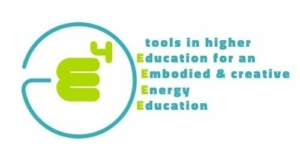Project number: 2024-1-ES01-KA220-SCH-000249236
Duration
36 months (from 1/12/24 to 30/11/2027)
Partnership
- ASOCIACION PLAN DE ACCION GLOBAL PARA LA TIERRA GAP ESPANA (Leading Partner, Spain)
- Global Action Plan Ltd. (Partner, Ireland)
- Fundacja GAP Polska – Plan Globalnego Dzialania na rzecz Ziemi (Partner, Poland)
- InEuropa SRL (Coordinating Partner, Italy)
- Learning Unpacked Applied (Partner, Kenya)
- Pestalozzi soc.coop. (Partner school, Spain)
- Artxandape Ikastola (Partner school, Spain)
- IC Umberto I (Partner school, Italy)
- Aga Khan Academy Mombasa (Partner school, Kenya)
Associated partners
- XXXV Liceum Ogólnokształcące z Oddziałami Dwujęzycznymi im. Bolesława Prusa (School, Poland)
- Trinity Comprehensive School of Ballymun (School, Ireland)
- Kenyan AP Yonder Africa (Associated partner, Kenya)
Description
The project aims to bring students to act as global citizens in their communities, and to train teachers as facilitators of this process.
In line with Just Action’s experience, students will be guided to act by being involved in a transnational participatory process that starts with the mapping of their action areas (their ‘neighbourhoods’). They will gather important information to analyse and improve, as global citizens, the life of their communities: facts and issues regarding the environment, inequalities, social justice and history will be the topics of their research. Based on the data collected, they will build a local digital map. The maps from the different partner countries, highlighting the strengths and weaknesses of the different areas, will be systematised by the young people themselves: each country will elect a delegation of local mappers who will take part in the Transnational Council of Mappers, charged with examining the status quo and imagining actions for improvement. They will do this together, noting how local problems are interconnected, and keeping a non-Eurocentric gaze capable of taking them beyond Europe (Kenya). Once back home, they will try to implement the proposed solutions, with their local community, and launch an awareness-raising campaign for their fellow citizens.
Objectives
Just Maps aims to encourage children’s engagement and awareness as global citizens, reinforce students and teachers critical and intercultural skills by collaborating with EU & Global South peers and develop a justice-based approach to local and global interconnected issues. This will be done supporting teachers’ professional growth as facilitators of behavioural change, introducing a whole new approach that will bring innovation into Global Citizenship Education in primary and secondary schools.
Target groups and beneficiaries
– Primary and secondary school students (8-15 years old) from different countries from the Global North (Spain, Italy, Ireland and Poland) and Global South (Kenya). The age range is the same as Just Action project, to give continuation to the project’s action-oriented approach.
– Primary and secondary school teachers: they will actively take part in the methodology-design process, they will be trained and share the acquired knowledge with their colleagues in a horizontal learning process. They will experience an action- based learning process as facilitators, and they will work on monitoring and evaluating results, also by using the Just Action’s reflection tool, based on a “head-heart-hands” approach.
– Local communities from the partner countries: they will become part of the learning process, and they will benefit from children’s participation with fresh ideas to solve community issues.
Just Maps’ results
1 International training programme for teachers
6 video-reports of students-local administrations’ meetings
6 digital maps of the neighbourhoods
6 elected Mappers’ delegations
1 International workshop for students as “Council of Mappers”
1 Transnational Manifesto of Just Cities
6 digital stories of local alternative scenarios
6 local student-led actions
12 students’ advocacy campaign plans
12 students’ campaigns
6 campaigns evaluation reports created by children.

